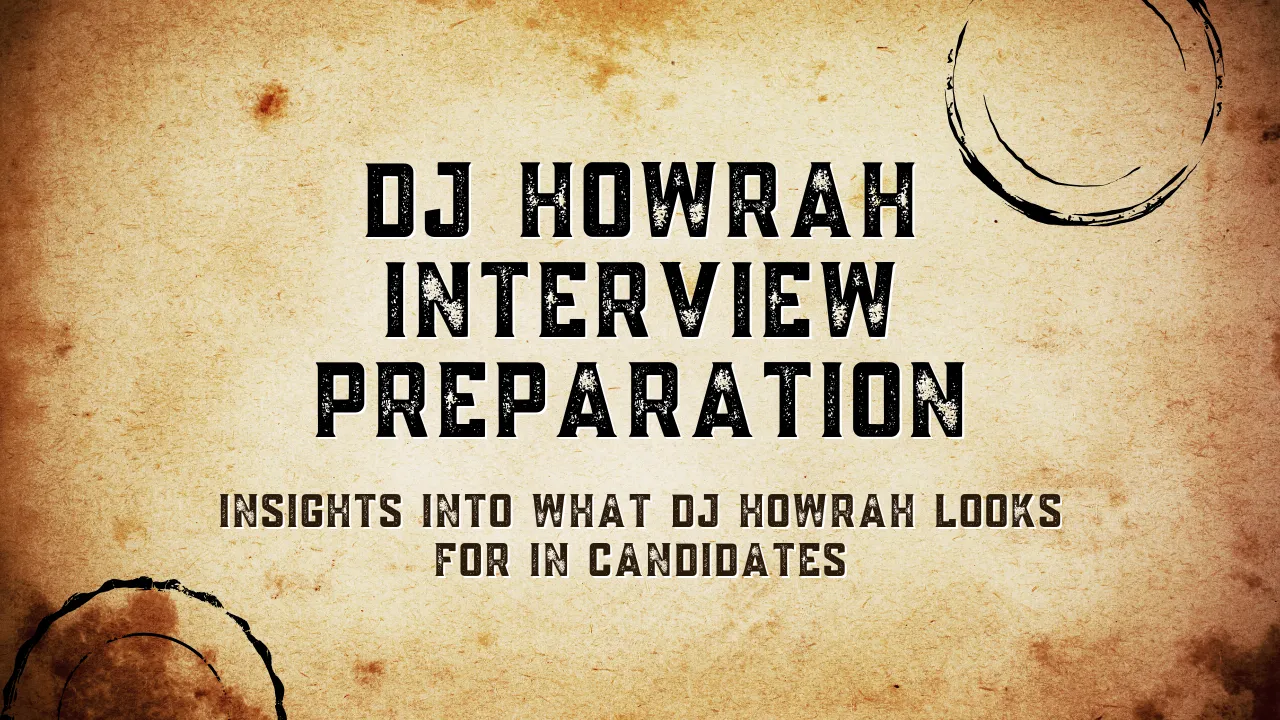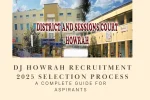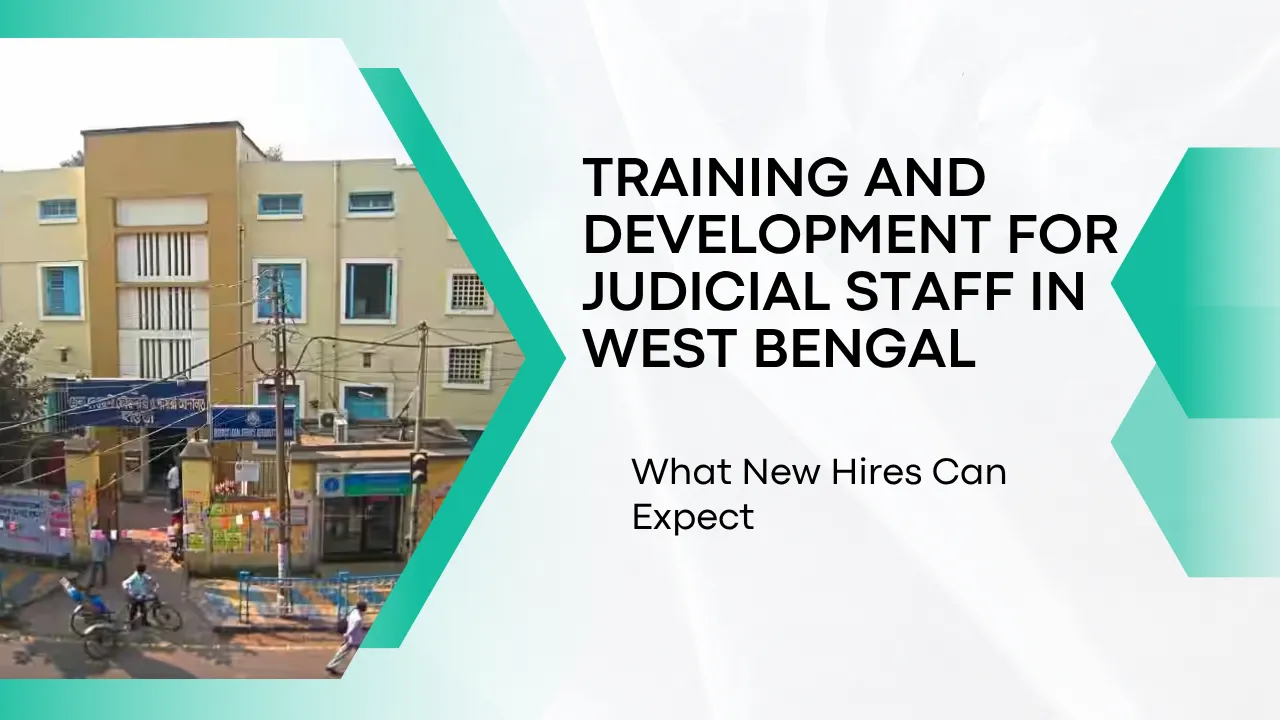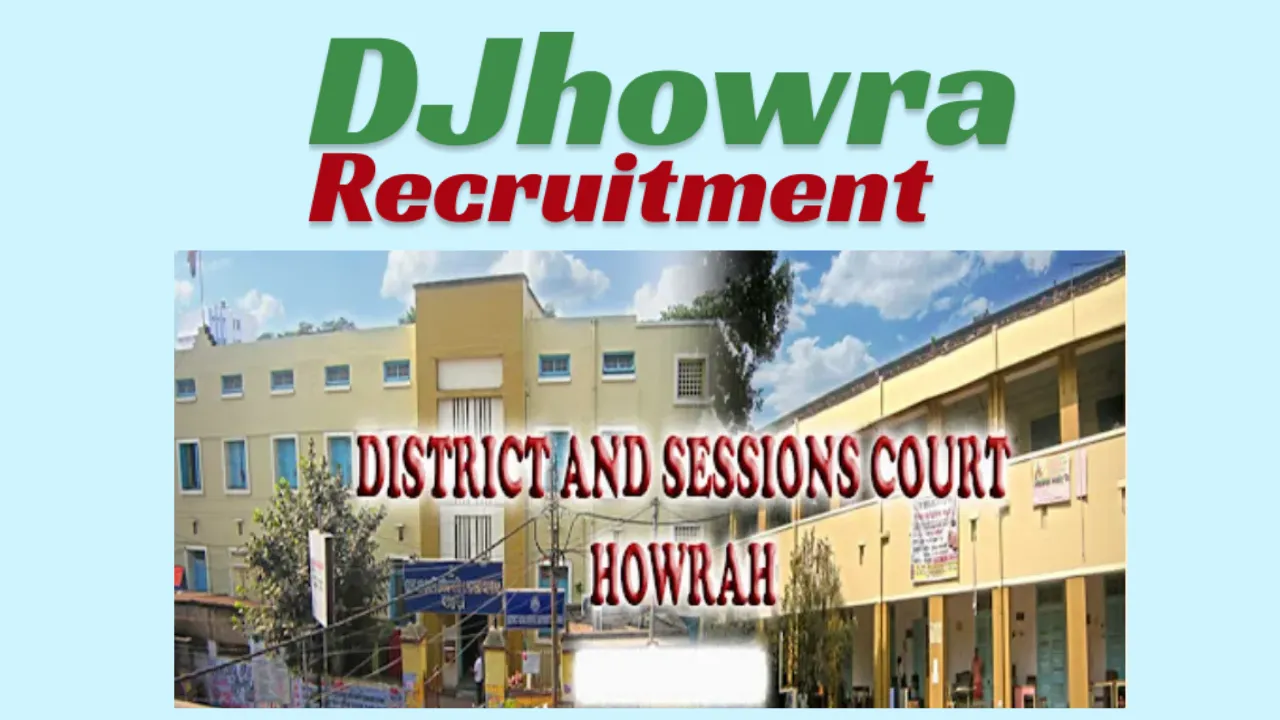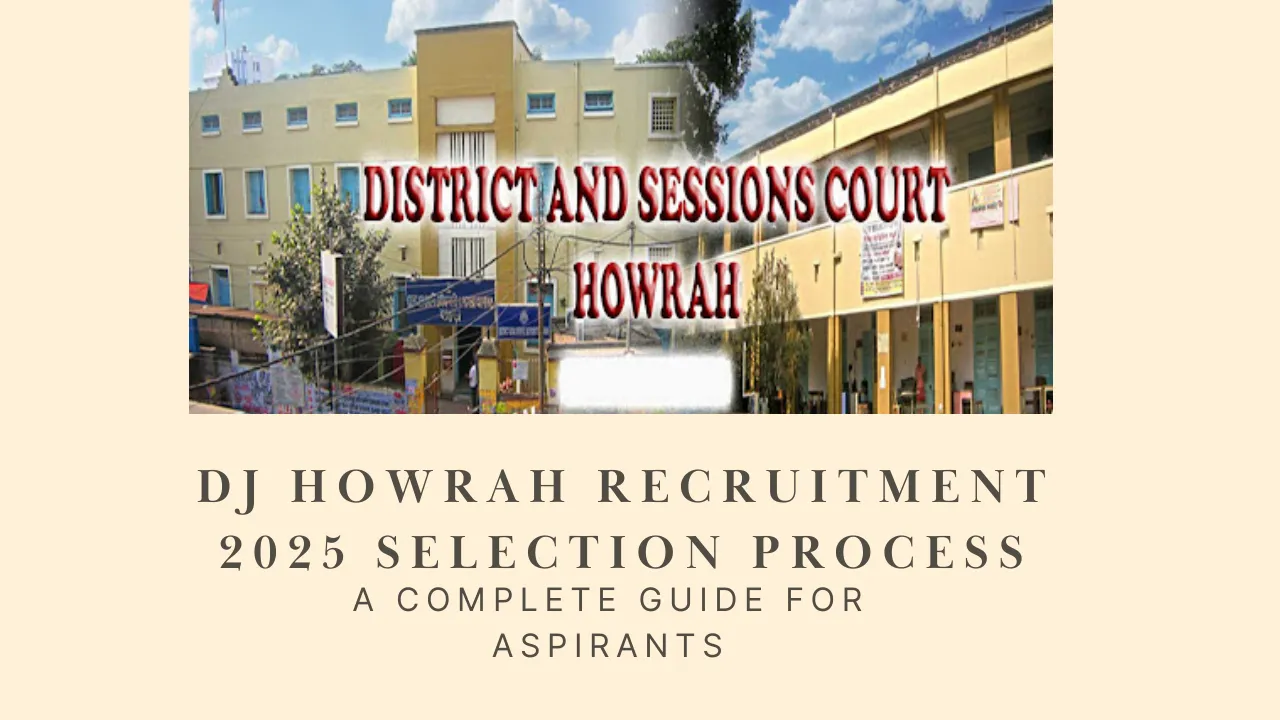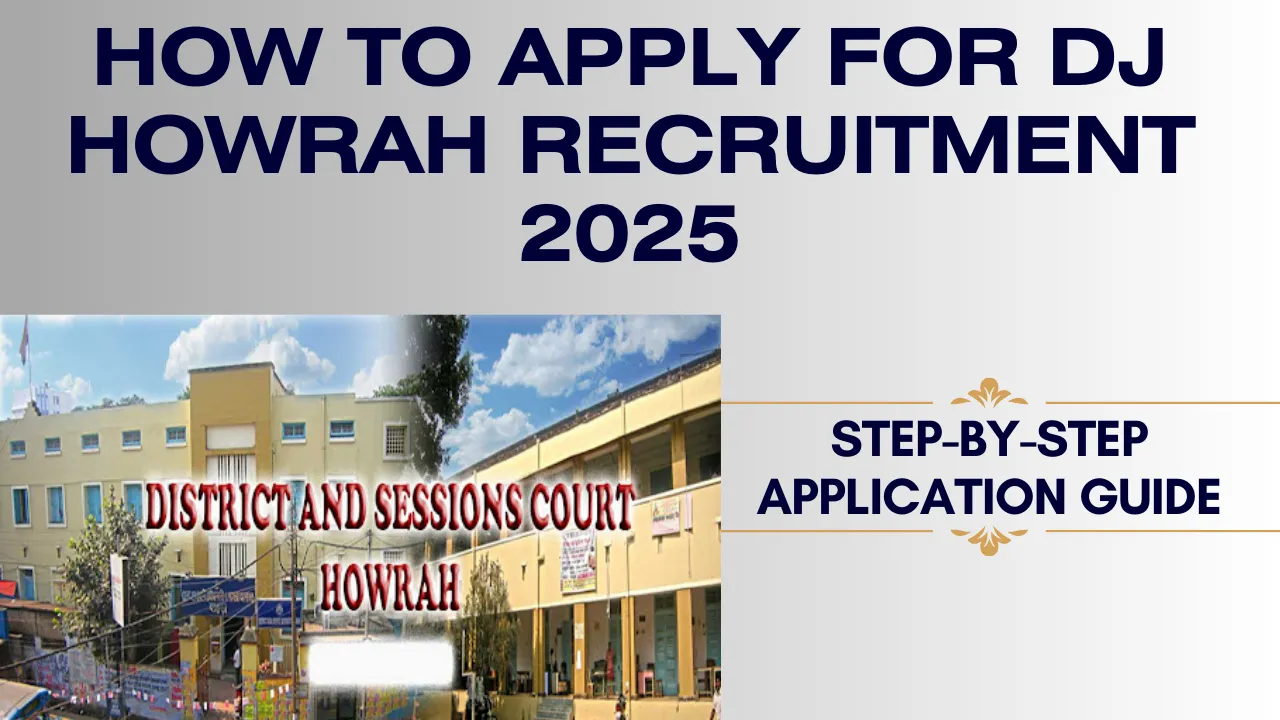DJ Howrah interview preparation: Preparing for an interview at the District Judge’s Court in Howrah involves more than just memorizing answers. It’s about embodying the professionalism, integrity, and public service orientation expected within the judicial system. As a candidate for roles like Lower Division Clerk, Stenographer, or Process Server, your performance is evaluated on your communication skills, courtroom demeanor, and alignment with the court’s standards. Mastering these nuances can significantly improve your chances of securing the position.
Embarking on your DJ Howrah interview preparation, you’ll need to focus on several core areas: professional presentation, relevant skills, knowledge of judicial procedures, and thoughtful responses to common questions. This focused preparation helps differentiate you from other applicants and demonstrates your readiness to serve within a respected legal institution.
DJ Howrah interview preparation
Overview Table
| Preparation Area | Focus Points |
| Professional Presentation | Formal attire, composed posture, polite language |
| Key Skills & Attributes | Attention to detail, communication, confidentiality, adaptability, teamwork |
| Role-Specific Competencies | Typing speed, stenography, service of process, e‑courts familiarity |
| Common Interview Themes | Public service motivation, scenario handling, strengths and weaknesses |
| Practice Strategies | Mock interview, research, resume review, interview-day questions |
I. Professional Presentation
Your appearance and behavior are your first statement. For DJ Howrah interview preparation, dressing smartly is essential. Men should opt for a crisp shirt and tailored trousers; women might choose a saree, formal kurta, or suit. Clean, pressed clothing shows respect for the judicial environment.
Once inside, maintain an upright posture, steady eye contact, and a calm tone. Avoid fidgeting—like tapping feet or adjusting clothes—as this can signal nervousness. Using polite language, such as “Sir” or “Madam,” and thanking the panel at the end reflects courtroom etiquette. This foundation forms your courtroom demeanor, reinforcing your seriousness about the role.
II. Demonstrating Relevant Skills and Experience
To succeed in this judicial interview, you must communicate how your skills match the court’s needs:
- Attention to Detail & Accuracy: Discuss experiences where precision was essential—such as maintaining records, error-free document filing, or proofreading reports. For an LDC role, explain how you tracked cases to avoid misplacement.
- Organizational Skills: Courtwork demands managing paperwork, schedules, and digital files. Describe tools or systems you used to stay organized—maybe a task list, digital calendar alerts, or labeling folders.
- Verbal & Written Communication: Articulate your thoughts clearly. Examples: explaining a complex case simply, or drafting formal documents. For stenographers, highlight shorthand speed and thorough transcription experience. For process servers, emphasize respectful and effective communication while serving legal notices.
- Computer Literacy & E‑Courts Familiarity: Show your comfort with MS Office and digital systems. If you’ve used court software or e‑filing platforms, mention it. That shows you’re adaptable and ready for the digital age of judicial administration.
- Confidentiality & Integrity: Stress understanding of data privacy and trustworthiness. State that you treat all judicial material as strictly confidential, matching the court’s expectations for ethical conduct.
- Team Player: Share times when you collaborated effectively—perhaps covering coworker duties or assisting during peak periods. Working in court often depends on team effort.
- Adaptability & Problem-Solving: Courts change procedures, and unexpected situations happen. Talk about how you learned new software or adjusted timetables without disrupting workflow.
- Service-Oriented Attitude: Highlight a genuine desire to contribute to justice. For example, discuss volunteering experience or past roles in administrative service.
III. Common Interview Questions and Responses
Use the STAR method—Situation, Task, Action, Result—to craft effective responses.
- “Tell us about yourself.”
Keep it concise: educational background, relevant experience, and why you’re drawn to the judiciary. - “Why do you want to work at DJ Howrah?”
Focus on public service, respect for the judiciary, and your alignment with court values. Mention any research on court structure or past exposure to legal procedures. - “What do you know about the role?”
Demonstrate role-specific research. LDCs handle documents and records; stenographers transcribe sessions; process servers deliver notices enforcing judicial orders. - “What are your strengths and weaknesses?”
Strength: “I pay close attention to detail”—with real examples. Weakness: “I used to over-plan tasks, but I’m practicing setting timelines to improve efficiency.” - “How do you handle pressure or deadlines?”
Share a specific example: “During college, I had simultaneous project submissions and a part-time job. I prioritized tasks, communicated clearly with my team, and met all deadlines without sacrificing quality.” - “Why should we hire you?”
Sum up with your suitability: reliable, detail-oriented, tech-savvy, and committed to judicial excellence. - General Knowledge or Court Procedure Questions
Be familiar with recent judicial developments in West Bengal, such as e‑court implementations or landmark local judgments. Also understand the hierarchy—District Judge, Subordinate Courts—and the court’s functioning. - Situational Scenarios
For instance: “If a litigant becomes upset during process serving,” or “You find a mismatch in paperwork.” Emphasize following protocol calmly, documenting issues, and maintaining professionalism.
IV. Practice and Final Prep
- Research the Judiciary
Read about recent developments in the West Bengal court system and e‑courts. Familiarize yourself with the court’s chain of command and responsibilities. - Mock Interviews
Simulate interviews with a friend or mentor. Ask them to evaluate your posture, clarity, and tone. - Review Your Resume
Be ready to discuss every point—especially any prior work, extracurriculars, or public service initiatives. - Prepare Thoughtful Questions
Instead of generic queries, ask about induction training, digital systems used in the court, or performance evaluation metrics. - Plan the Day
Visit the interview location beforehand, decide your travel route, and aim to arrive 15 minutes early. Being late creates a negative first impression. - Body Language Counts
Smile, nod when listening, and avoid crossing your arms. These signals show openness and confidence.
Final Thought
Effective DJ Howrah interview preparation goes beyond rehearsing answers. It’s a holistic approach: presenting professionally, aligning your skills with court needs, and demonstrating respect for the judiciary’s values. Each decision—from clothing choices to thoughtful responses—reinforces your suitability for the role.
Call to Action
Ready to take the next step? Begin preparing today: craft your achievements, practice mock interviews, and research the West Bengal judiciary. Share this guide with fellow applicants aiming for judicial roles—it could be the key to someone’s success. Together, let’s build a capable and confident team for DJ Howrah!
FAQs
1. What should I wear to a DJ Howrah interview?
Men should choose a formal shirt with trousers; women should opt for a saree, formal suit, or kurta. Ensure everything is clean, pressed, and professional.
2. How important is computer knowledge for this interview?
Very important. Familiarity with MS Office, typing skills, and e‑courts tools shows you’re ready for modern judicial tasks.
3. Can I admit I don’t know an answer?
Yes. Honesty and composure are appreciated. Admit if you need clarity and keep your response concise.
4. Should I prepare for current affairs questions?
Yes. Stay updated on legal initiatives, court digitization, and recent cases in West Bengal to make a positive impression.
5. What’s a good question to ask the interview panel?
Ask about the court’s induction training or how staff performance is measured—this shows your interest in growth and alignment with court culture.
